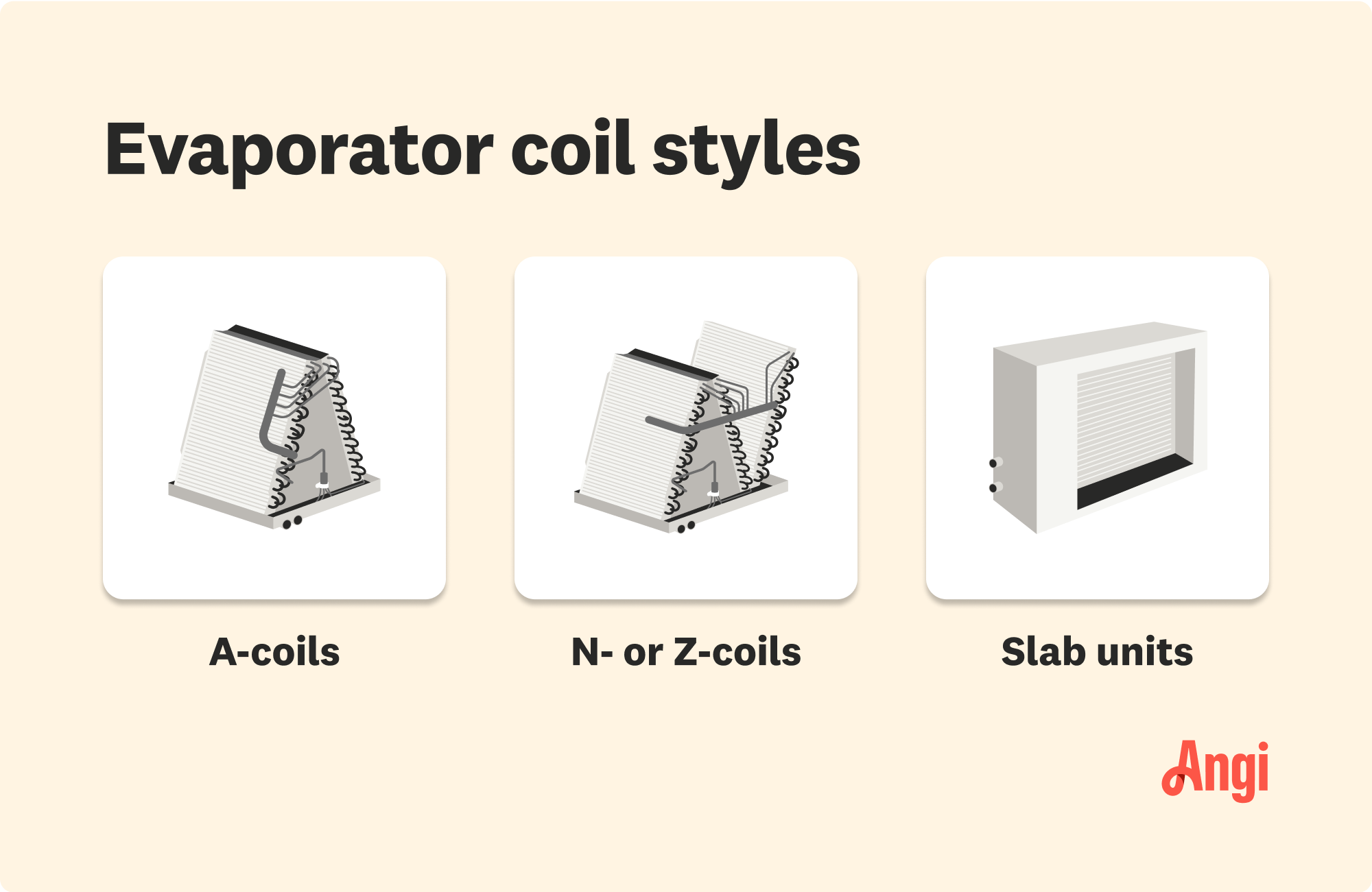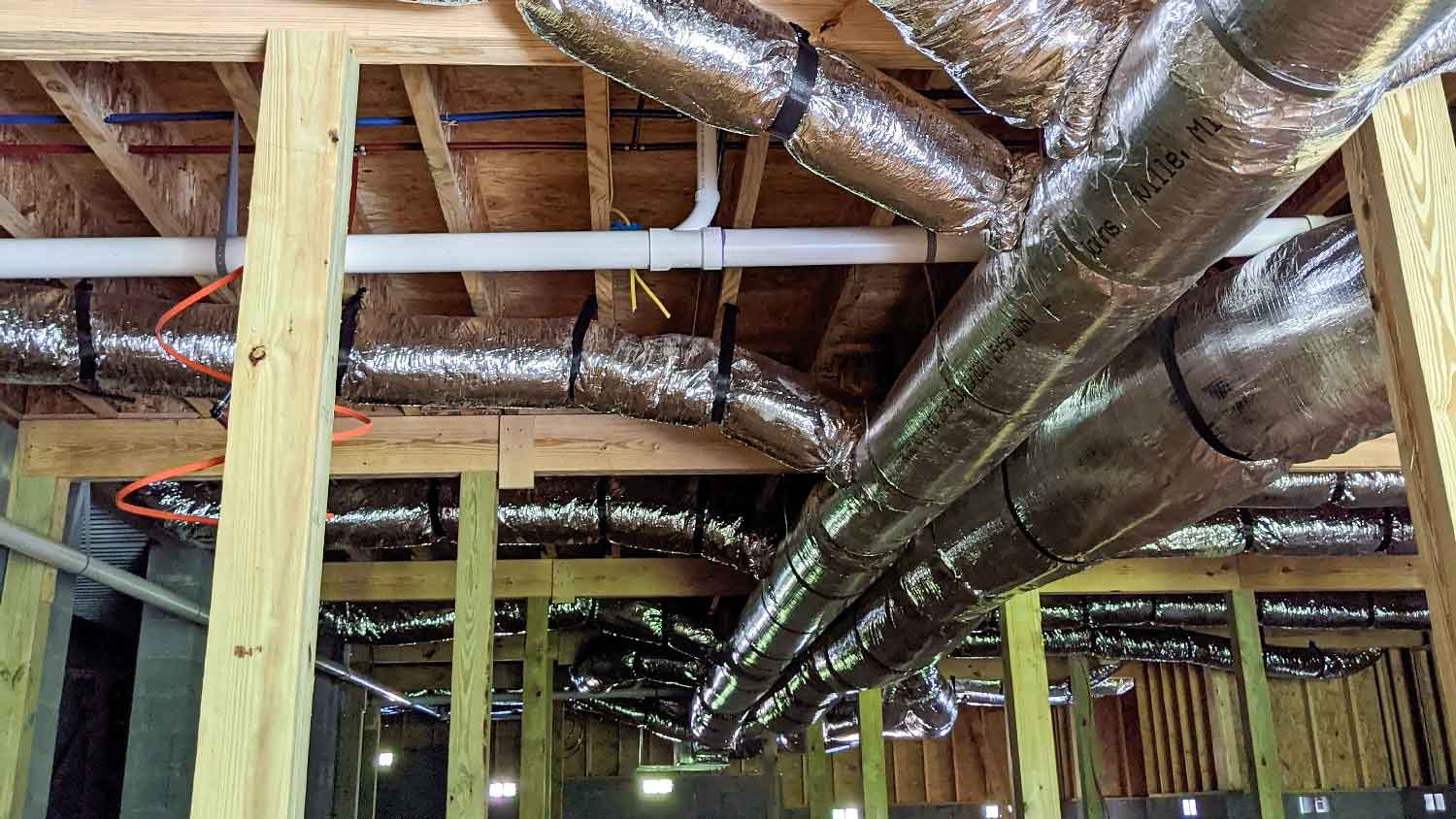
If your furnace is malfunctioning, it could be a faulty control board. Find out what a furnace control board replacement costs for parts, labor, and more.
Replacing an evaporator coil costs an average of $1,350, and it often ranges from $600 to $2,000 depending on the size, type, and the cost of pro labor in your area.


Replacing an evaporator coil costs an average of $600 to $2,000.
Labor for an evaporator coil replacement costs between $400 and $1,000.
A higher SEER rating means a higher up-front cost, and just a one-point jump in SEER could mean an additional $2,000 in price.
People often have their AC condenser coils replaced at the same time, which costs around $800.
Evaporator coil replacement costs $1,350 on average, but you could pay anywhere from $550 to $2,250, depending on the unit and brand of the evaporator coil. Whereas you normally feel like you’re walking into the Arctic Circle when you get home, today it felt more like New Orleans in July. If this is you, there’s a chance that your evaporator coil is on the fritz and needs a replacement.
Beyond the size of the unit, you also need to consider labor costs, ease of access, and the brand of the evaporator coil to determine the total evaporator coil replacement cost. You should also prepare yourself in case the AC repair company tells you other things need fixing, which will increase the cost.
Manny was very trustworthy and professional. He gave me a very fair price. Within 24 hours he had done his inspection and given me an estimate. It's the first time I talked to an HVAC company that didn't make me feel like I was getting overcharged. One of the other companies I spoke to was trying to charge 6 times the cost. He took lots of pictures and video and explained step by step what was done wrong by the other contractors and what he would need to do to fix it. He was able to do the work the day after I accepted the estimate. He completed all the work in one day. I am confident and very relieved to say that my HVAC system is set up properly.
AC units differ in size from household to household. While you may have a 3-ton unit outside your home, your neighbor may be rocking a window unit. This is why some people pay as little as $550 for their evaporator coil replacement, and others pay closer to $2,000.
| Unit Size | Average Cost |
|---|---|
| 2 ton | $550 |
| 2.5 ton | $700 |
| 3 ton | $850 |
| 3.5 ton | $950 |
| 4 ton | $1,000 |
| 5 ton | $1,100 |
This cost is only for the unit replacement and does not include labor. Labor costs around $700 on average. If your unit doesn’t state how big it is, you should contact your local air conditioning repair company to help you figure it out.
Labor for an evaporator coil replacement costs anywhere from $400 to $1,000 depending on the job and service area. Labor tends to cost around the same as the evaporator coil itself because you need a license to handle refrigerant. Refrigerant is a serious chemical compound you don’t want on your skin.
Where the unit resides in your home makes a difference in cost. In most cases, a unit is an accessible place that makes repairs easy. But if the unit is older or doesn’t make it easy to work in, expect to pay more in per hour labor costs, as the AC repair person needs to shimmy into a tight fit and may need to disassemble more of the unit.
There are three main types of evaporator coils: A-coils, N- or Z-coils, and slab units.
| Coil Type | Description | Average Cost |
|---|---|---|
| A-coil | Space-efficient design, optimizes heat exchange | $1,300 |
| N- or Z-coil | Improved overall system performance | $1,550 |
| Slab unit | Compact and perfect for smaller spaces | $1,200 |
| Uncased | Simplest installation | $800 |
| Cased | Good for highly customized areas or smaller spaces | $1,000 |

The complement to the inside evaporator coil is the condenser coil. The condenser coil cools the gas the evaporator creates and turns it back into a liquid. They tend to have the same life span, so if your evaporator is on its last leg, you may want to check out your condenser as well. An AC condenser coil replacement costs around $800.
If you’re particularly unlucky and run into a host of problems at once, there are other common HVAC replacements you may need to invest in.
Replacing a blower motor costs $475 on average.
Replacing an AC or furnace control board costs $275 on average.
Installing a new relay switch costs $225 on average.
If your unit is still pretty new, you may be able to get your repairs covered completely under your warranty. Time to pull that warranty page out of the back of the file box or go searching in your emails. Keep in mind that you may have to work with a specific company if you want your repairs covered under warranty, so read wisely.
SEER stands for Seasonal Energy Efficiency Ratio (or Seasonal Energy Efficiency Rating) and measures how efficiently your HVAC unit can cool your home. The higher the number, the more efficient the system (and the more you save on electric bills). However, parts and units with higher SEER ratings also come at a higher upfront cost. Just a one-point jump in SEER could mean a $2,000 difference.
While DIY replacement can save you $400 to $1,000 in labor fees, it’s not recommended for this project. Replacing an evaporator coil requires working with refrigerant, which requires a license and specialized expertise. For a safe replacement, always hire an experienced HVAC pro in your area.
Safely replacing an evaporator coil requires careful precision, expertise, and licensing. Here’s why you should always hire a pro for the job:
Pros know how to prevent leaks, ductwork, damage, and improper installation that can lead to reduced efficiency and costly repairs.
Working with a pro ensures your project complies with local building codes and HVAC regulations.
DIY replacement can lead to complete system failure, refrigerant leaks, and costly damage.
Reputable HVAC pros carry insurance and offer warranties for added protection.
If you want to help out your pro, consider tackling the following tasks:
Clear the area around your HVAC system of obstacles, furniture, and decor.
Keep tools, parts, and equipment nearby and easily accessible for your pro.
Clean your system and the surrounding area once the replacement is complete.
Let your pro know the specs of your HVAC system, including its size, type, and brand.
Provide your pro with the measurements and location of your system, and let them know of any obstacles that could affect accessibility.
Ask about additional services, like tune-ups, filter replacement, or system cleaning, that can be bundled with the replacement.
Leave room in your budget for additional repairs that may be discovered during the replacement process.
Home is the most important place on earth, which is why Angi has helped more than 150 million homeowners transform their houses into homes they adore. To help homeowners with their next project, Angi provides readers with the most accurate cost data and upholds strict editorial standards. We extensively research project costs to develop the pricing data you see, so you can make the best decisions for you and your home. We rely on reputable sources, including the U.S. Bureau of Labor Statistics, academic journals, market studies, and interviews with industry experts—all to ensure our prices reflect real-world projects.
Want to help us improve our cost data? Send us a recent project quote to [email protected]. Quotes and personal information will not be shared publicly.
From average costs to expert advice, get all the answers you need to get your job done.

If your furnace is malfunctioning, it could be a faulty control board. Find out what a furnace control board replacement costs for parts, labor, and more.

Whole-house fans can help reduce your electric bills by providing ventilation and cool, fresh air. Use this whole house fan cost guide to price out the project.

Discover the cost to install ductwork. Learn about average prices, cost factors, and tips to save money on your ductwork installation project.

An icy coil can create costly AC repairs. Learn what to do if the evaporator coil freezes to ensure your HVAC system operates efficiently.
How to clean your air conditioner depends on the unit type. Sometimes, a good hose-down is all you need if you have centralized AC. This guide can help with the cleaning process.

Discover the benefits of a DIY outdoor wood furnace forced-air system. Cut costs, reduce fire risk, and embrace renewable heat for your home.